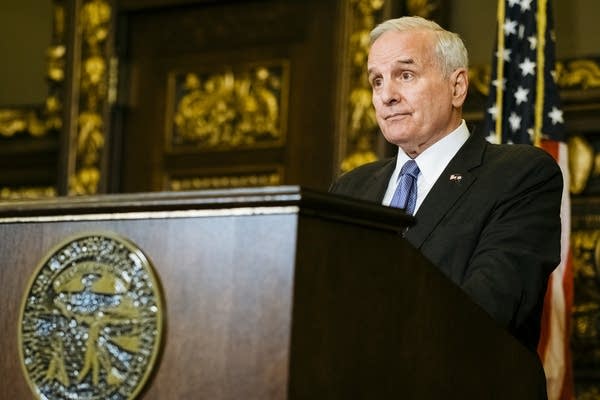Dayton apologizes for ongoing licensing problems

Gov. Mark Dayton speaks at a press conference inside the Minnesota State Capitol on in St. Paul, Minn. on Friday May 26, 2017.
Evan Frost | MPR News File
Go Deeper.
Create an account or log in to save stories.
Like this?
Thanks for liking this story! We have added it to a list of your favorite stories.


